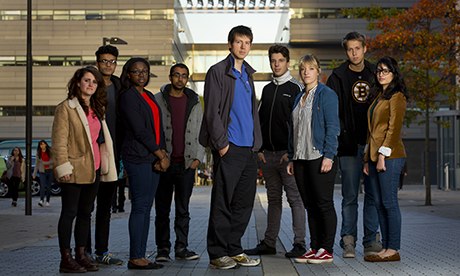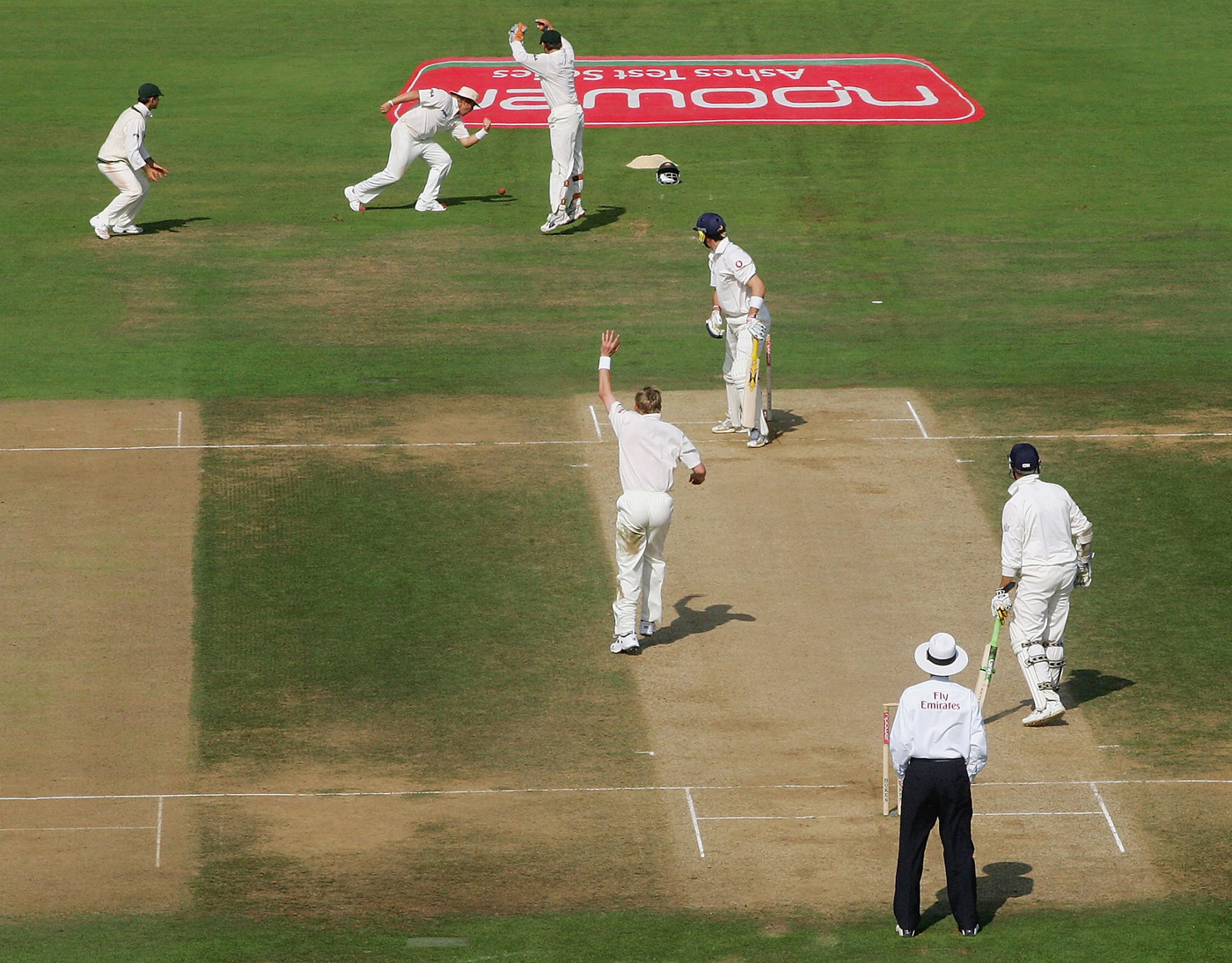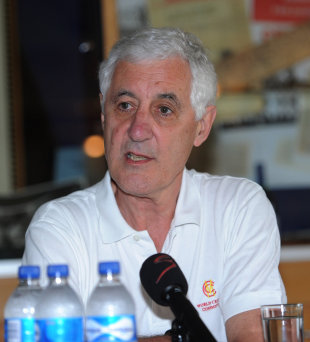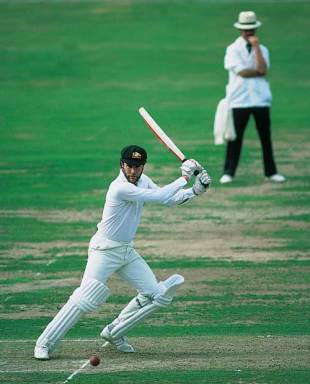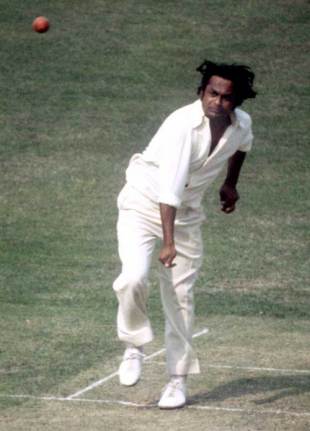Ricky Ponting talks about imposing himself on the bowler, batting to win, and turns the spot on his strengths and weaknesses
October 25, 2013
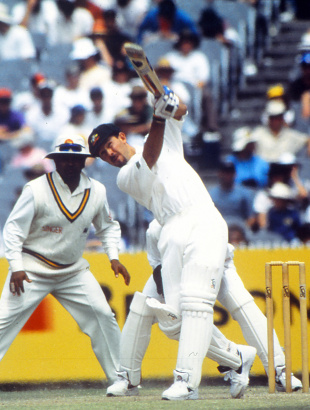
| |||
Related Links
News : Play best batsman at No. 3 - Ponting
Players/Officials: Ricky Ponting | Kim Hughes | David Boon |Harbhajan Singh | Mohammad Azharuddin | Rod Marsh | Greg Chappell | Ian Chappell
Teams: Australia
| |||
Something you've revealed in the opening pages of the book is your batting checklist. From the outside, batting always seemed the most natural thing for you, yet this shows how much effort was required to make it feel commonplace and normal.
That was a big part of my preparation. I was never really one concerned with what I did in the nets. Everything about net practice in our game is so false and fake to what you actually come across in a game that it doesn't have much impact, I believe, on what you take out into the middle. So a good way for me to get prepared was mentally, and make sure I had that checklist all ticked off the night before. The checklist started as a pre-season thing, where if I had a long break and was trying to get back into cricket I needed to get the basic things right so I could start building my game back up again.
That was a big part of my preparation. I was never really one concerned with what I did in the nets. Everything about net practice in our game is so false and fake to what you actually come across in a game that it doesn't have much impact, I believe, on what you take out into the middle. So a good way for me to get prepared was mentally, and make sure I had that checklist all ticked off the night before. The checklist started as a pre-season thing, where if I had a long break and was trying to get back into cricket I needed to get the basic things right so I could start building my game back up again.
Then I started using it in games and having some success and it just became something I felt I had to do before I batted. It's pretty simple stuff, but keeping your mind nice and clear is always one of the biggest challenges, and keeping what you need to in there, which for me was always to watch the ball. I kept the premeditation out of there - about if this one's pitched up I'm going to drive it or if it's short I'm going to pull it. When you have those thoughts in your mind when the ball's about to be released, you generally get out.
Watching the ball is a simple idea to follow, but were there times when you were thinking less about the ball than fighting it out with the bowler who delivered it?
Probably a lot of the time. There was one other thing I used to put into that checklist - if there was an opposition bowler who I knew I could sometimes get a bit fired up against, then I used to have "Don't get involved in any one-on-one battles." Then it was trying to take the bowler or the character out of it and focus on what he was delivering.
Probably a lot of the time. There was one other thing I used to put into that checklist - if there was an opposition bowler who I knew I could sometimes get a bit fired up against, then I used to have "Don't get involved in any one-on-one battles." Then it was trying to take the bowler or the character out of it and focus on what he was delivering.
Sometimes that could get me going a bit as well. I was always someone who tried to counter-attack and be pretty positive with the way I played and tried to put pressure back on the bowler. But there were other occasions where I went too far, got too fired up and carried away, tried to impose myself too much, and then you're out. Finding that balance between imposing yourself and putting the bowler under pressure without going outside what works for you.
Can you remember times when the one-on-one battle did work for you and others when it didn't?
We as a team had certain bowlers who we felt we could put pressure on and get the better of, and that was always the top three's job to do that.
We as a team had certain bowlers who we felt we could put pressure on and get the better of, and that was always the top three's job to do that.
A guy like James Anderson, early in his career, we were able to keep down for long periods of time. It's not so much targeting guys, but they were younger players coming into international cricket and we knew if we could do that we might get the better of them. But there were others like Darren Gough, who got me out a lot in Ashes cricket, and I always used to impose myself on him. We had some pretty good battles, I made a few hundreds against him but he got me out a few times. And there were occasions where I went a bit hard at balls I shouldn't have that made me think I can't keep playing that way against the bowler, need to focus on the ball.
Kim Hughes was a hero of yours starting out. What most grabbed your attention and made you want to emulate him?
Just the way he played. The flair. The down-on-one-knee cover drives and the fearless hooking and pulling of the West Indians. If you wanted to watch an attractive batsman you'd walk a long way to see anyone play the game in a more attractive manner than Kim Hughes did. I think it was just that.
Just the way he played. The flair. The down-on-one-knee cover drives and the fearless hooking and pulling of the West Indians. If you wanted to watch an attractive batsman you'd walk a long way to see anyone play the game in a more attractive manner than Kim Hughes did. I think it was just that.
We all loved the style of Greg Chappell, but it was that Kim seemed to have something a bit more special about him with the way he played. He didn't end up having the record Greg had, but he was fun to watch.
Then Boonie came along after that and played quite differently but became an idol of mine for the fact we both grew up in Launceston and played in the same grade competition and state cricket, and he gave me a path to follow. Those were the two guys I idolised as a youngster.
| "It's about finding that balance between imposing yourself and putting the bowler under pressure without going outside what works for you" | |||
Something what is apparent even from your earliest days is that playing pace came naturally but playing spin was difficult. When we look at your career as a whole it was Harbhajan Singhwho gave you most trouble, but Tim May, Greg Matthews and offspin were a struggle right from the start.
It was, and I actually went back to the academy to work on that more than anything. What was difficult about working on playing spin in Australia in the off season, particularly in Adelaide, was, we were doing it all in the indoor nets and it was so false. You could run down the wicket without any fear at all of getting stumped or one spinning past the outside edge. You just had the freedom to hit the ball wherever you wanted to. In the nets there I was a pretty good player of spin, but when you got out into the middle on Adelaide Oval or the SCG, where it used to spin a lot, against two of the country's best spinners it was a different game altogether. It was right-arm offspin out of anything that troubled me the most.
It was, and I actually went back to the academy to work on that more than anything. What was difficult about working on playing spin in Australia in the off season, particularly in Adelaide, was, we were doing it all in the indoor nets and it was so false. You could run down the wicket without any fear at all of getting stumped or one spinning past the outside edge. You just had the freedom to hit the ball wherever you wanted to. In the nets there I was a pretty good player of spin, but when you got out into the middle on Adelaide Oval or the SCG, where it used to spin a lot, against two of the country's best spinners it was a different game altogether. It was right-arm offspin out of anything that troubled me the most.
You found reading length against a good spinner the most challenging task?
On the truer wickets it was okay because you could get away with it, but the one thing I learned about playing spin in India… the first couple of tours were horrible, but the last few tours I had there where I actually understood what I was trying to do a bit better, I actually had some success.
On the truer wickets it was okay because you could get away with it, but the one thing I learned about playing spin in India… the first couple of tours were horrible, but the last few tours I had there where I actually understood what I was trying to do a bit better, I actually had some success.
It was all about not getting trapped to good-length balls. Not trying to predict where the ball was going to spin to. It was about trying to hit it before it spun or [well] after it spun, and that's what the good Indian players always did.
That's a concept that Australian batters don't have to think about because the ball doesn't spin very much in domestic cricket here. Even our current blokes, if you look at the struggles they had against Swann in the last Ashes series, it was because you're just not brought up seeing and playing quality spin, and more importantly playing it in conditions that actually favour the bowler. Even with our practice facilities in Australia you don't get that very often.
Mohammad Azharuddin was the source of a lot of that advice about playing in India. How did you get talking?
He and I actually got on pretty well. I think he saw similarities in the way I played and the way he played as a younger guy. He played all the shots when he first came on the scene, so we struck up a bit of a relationship early doors. It probably was my first Test tour to India in 1998, and if you watched the way he played, he was always out in front, flicking his wrists, and for us that was so foreign.
He and I actually got on pretty well. I think he saw similarities in the way I played and the way he played as a younger guy. He played all the shots when he first came on the scene, so we struck up a bit of a relationship early doors. It probably was my first Test tour to India in 1998, and if you watched the way he played, he was always out in front, flicking his wrists, and for us that was so foreign.
Dhoni does it really well as well. He's not actually a great player of spin bowling but he's got the technique there where they work the ball around and never get caught at bat-pad or done on length. When we go there we always get caught at bat-pad because we're predicting where the ball is going to go.
But yeah, I first heard it from [Azharuddin], he talked about getting to it on the half-volley before it has the chance to spin or get back in your crease and wait for it fully spin and play it from there. It sounds pretty easy but it's difficult to do in the heat of battle against good quality spin bowling. But the technique makes a lot of sense.
Against fast bowling, from an early age you'd been used to big guys trying to knock your block off, so it didn't feel too uncomfortable when you entered Test cricket. But was there anything you did in particular that made you relish that?
I think it was just the fact I did it. I was sort of forced to do it as an 11- or 12-year-old on hard, bouncy synthetic wickets. The indoor centre where I did most of my training as a kid was all hard-wicket stuff. And most of the time I'd be in there with no helmet on and trying to find a way to survive. That's the flip side of spin.
I think it was just the fact I did it. I was sort of forced to do it as an 11- or 12-year-old on hard, bouncy synthetic wickets. The indoor centre where I did most of my training as a kid was all hard-wicket stuff. And most of the time I'd be in there with no helmet on and trying to find a way to survive. That's the flip side of spin.
And if you go and watch junior cricket now, they're all playing on synthetic and the ball's bouncing up towards head height, so you can see why kids play cross-bat shots at an early age rather than straight-bat shots.
Also my pre-movements - with the way I pick the bat up and get on the front foot, I'm actually in a really good position to play the short ball anyway without having to move too much. If you broke down my technique and looked at Mark or Steve Waugh's technique, guys who weren't natural hookers and pullers, it's pretty easy to work out why. My hands were up and my bat was up, which means I just had to drop the bat on the ball. They - and Damien Martyn was another - their hands were low and their bat was low, which meant to play a pull shot they had to lift their bat up and get it down again. So they didn't have the time I had to do it. But the guys with low hands were beautiful on-side players, because they didn't have to move the bat too far.
Later in your career when the pull shot and the short ball were causing you some trouble, you said it would have been like cutting a limb off to not play it.
It probably was my most instinctive shot. Straight-driving or on-driving was probably my favourite shot, but if you want to demoralise fast bowlers, if they give you all they've got and you can manage to put it away in front of square hard off the middle of the bat, they're not going to bowl too many more there. And that was what I always tried to do.
It probably was my most instinctive shot. Straight-driving or on-driving was probably my favourite shot, but if you want to demoralise fast bowlers, if they give you all they've got and you can manage to put it away in front of square hard off the middle of the bat, they're not going to bowl too many more there. And that was what I always tried to do.
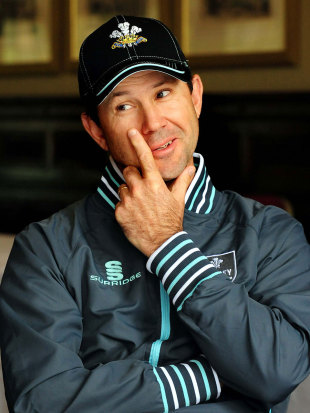
| |||
As things went on and I got out a lot playing that shot… it's like anything, if you play a lot of cover drives and get out nicking them a few times, it's hard to put the shot away when you score so many runs from it. And that's how I looked at it. I just had to play it better like I was earlier in my career. It was so instinctive and as I mentioned with the way I moved, I was already in that position, so to try to get out of that position is pretty tough.
You mentioned Ian Young, Rod Marsh and Greg Shipperd were your three major mentors. How important do you think it is to get the best possible coaching at that early stage, rather than later, when you're already in international cricket?
That's what's missing from Australian cricket. I don't think we've got the calibre of people hanging around club cricket even that we used to. The older guys aren't playing club cricket anymore or 2nd XI cricket for their states anymore, so what you end up having is a huge group of young blokes all trying to learn from themselves, and it just takes so much longer than it would if you had the older guys hanging around.
That's what's missing from Australian cricket. I don't think we've got the calibre of people hanging around club cricket even that we used to. The older guys aren't playing club cricket anymore or 2nd XI cricket for their states anymore, so what you end up having is a huge group of young blokes all trying to learn from themselves, and it just takes so much longer than it would if you had the older guys hanging around.
Ideally you'd like to have guys like me and Mike Hussey hang around and play state cricket for another couple of years, and have the chance to bat with Alex Doolan or Cameron Bancroft or Sam Whiteman and those young blokes in WA. Dan Marsh [the Tasmania coach] brought it up this year. Alex Doolan, he was a guy who averaged high 20s in first-class cricket, but the times I batted with him last year he got a hundred every time. It's just that stuff that can't be replaced and that's not happening down through the system.
Because there's no money in coaching back down the system we're just losing the people we want around. They've got to go and find something else to do because they can't afford to be involved in cricket. Even at the highest level, a state assistant coach doesn't get a lot. If there's one thing that needs to be addressed, it is to have the right people, and more ex-international players, involved in coaching in our country. Until we get to a stage where the coaches are being paid a lot closer to what the players are being paid then we're just not going to be attracting the people we want to keep around the game.
If you look at the England set-up, they've got Andy Flower, an ex-No. 1 Test batsman in the world, Graham Gooch their highest Test run scorer, Graham Thorpe, who is probably their best-ever batsman technically - he's looking after their one-day batters. No disrespect to any of our guys but we haven't got that calibre of player involved around the Australian team.
For a while you had that, with Justin Langer looking after the batsmen and Craig McDermott the bowlers, and with yourself and Michael Hussey still in the team. There seemed to be a good environment of learning.
But even then, why does JL go back to coach a state team? It's easier, you're not on the road as much, you're probably getting paid more, and you're probably running your own programme. It shouldn't be that way. If you're a coach of the national team in any way, shape or form, that's got to be more lucrative than any of the other stuff, and then trickling back down.
But even then, why does JL go back to coach a state team? It's easier, you're not on the road as much, you're probably getting paid more, and you're probably running your own programme. It shouldn't be that way. If you're a coach of the national team in any way, shape or form, that's got to be more lucrative than any of the other stuff, and then trickling back down.
We've got to find a way of getting some money back into club cricket as well. Facilities and things like that.
The Centre of Excellence as well, for a long time it hasn't been the ultra-dynamic, best coaching facility it should be. The people they've had there haven't been that. When I was in Adelaide you had Rod, Greg and Ian Chappell, Terry Jenner, the best available people at that time. If you look now, the coaches they've had there were guys who were battling first-class cricketers. You can understand why young kids might not be that excited about getting up and going to training every day. When I was there I couldn't wait to get up and hear what Greg Chappell was going to say about batting, but it's not been that way for ten years. The facility is unbelievable - no secret why Queensland so often start so well - but the states have been reluctant to send young blokes there because they've probably had better structures and coaches in their states.
It's got to go back the other way and be the best training facility not only in Australia but in the world. England looked at our set-up and made theirs better, their academy better, their coaching structure better. Even having somebody like Rod there - he wouldn't have come cheaply. If there was a job he'd have least liked doing, it would have been chairman of selectors for England and running their academy!
| "My view on selection is, you only ever make a change if it's going to make the team better. A lot of the changes we made didn't make the team better, and I don't care what anybody says" | |||
But I asked for this stuff ten years ago, we all asked for this stuff ten years ago and it was always knocked on the head. No, you don't need a batting coach - that was the attitude they had.
When Steve Waugh became Test captain in 1999 and there was a bit of shuffling going on in the batting order, you reckoned he should have been at three at that time. You've always advocated that the best player in a team should be at three.
I still have the same thoughts now. The best batsman should be at three. I said it during the last Ashes series as well. The times where we were 3 or 4 for 30, if your best batsman had been in earlier then maybe we'd have been only 1 or 2 for 30 or 40. You're the best batsman in the team because you've got the most skill. You've got more skill and can handle situations better than others.
I still have the same thoughts now. The best batsman should be at three. I said it during the last Ashes series as well. The times where we were 3 or 4 for 30, if your best batsman had been in earlier then maybe we'd have been only 1 or 2 for 30 or 40. You're the best batsman in the team because you've got the most skill. You've got more skill and can handle situations better than others.
Michael [Clarke] has clearly been the best batsman in Australian cricket for probably the last three years, but he was almost coming in too late, when the damage had already been done. I just think it sends a great statement as well: I'm coming in now. It puts pressure back on the bowlers, and just the way I feel it should be. That's why I said it about Steve, he was clearly the best batsman in our team and ranked the best batsman in the world. I don't think you can ask less skilled or less experienced guys to handle the hardest positions. It should always be up to you.
Many will wonder what you consider your greatest strength as a batsman. But to ask the question two ways: what was a strength you always had and what was another you had to work hard to bring to your game?
A strength of mine was a will to win a contest and not ever let a bowler get the best of me or my partnership when I was at the crease. And I'd like to think that's what others said of me as well. When it was my turn, I did what I did to give my team the best chance of winning.
A strength of mine was a will to win a contest and not ever let a bowler get the best of me or my partnership when I was at the crease. And I'd like to think that's what others said of me as well. When it was my turn, I did what I did to give my team the best chance of winning.
Something I had to work on was my communication skills around the team when I took over the captaincy. I set good examples and always did the right thing, but once I became a captain I had to find different ways to inspire others and learn about others and work out people's personalities. That was something I was constantly working on through my time as captain. I knew if I didn't do that, I couldn't get the best out of the players.
As for weaknesses, you'd say spin bowling was the one you started with based on nurture?
Yeah, I started with that, but it's interesting, it was only a couple of series around playing spin as well. My record in Australia against spin would be pretty good because I knew how to play on those pitches. It was only on a couple of visits to India where I really struggled. I had some good series in Sri Lanka against Murali on some spinning wickets and found a way to play him. I think it was actually the shape he bowled. Harbhajan troubled me more because when he started he got the ball to drift out, and when the ball drifts out, it lures you into playing. Murali's angle, because he was wide of the crease and coming over the ball, he was almost drifting in and spinning in further. Harbhajan got me a lot early from balls that drifted out, committed me to play, caught a footmark and got caught in close. Murali was always coming that way [towards the leg side], so I could work him around.
Yeah, I started with that, but it's interesting, it was only a couple of series around playing spin as well. My record in Australia against spin would be pretty good because I knew how to play on those pitches. It was only on a couple of visits to India where I really struggled. I had some good series in Sri Lanka against Murali on some spinning wickets and found a way to play him. I think it was actually the shape he bowled. Harbhajan troubled me more because when he started he got the ball to drift out, and when the ball drifts out, it lures you into playing. Murali's angle, because he was wide of the crease and coming over the ball, he was almost drifting in and spinning in further. Harbhajan got me a lot early from balls that drifted out, committed me to play, caught a footmark and got caught in close. Murali was always coming that way [towards the leg side], so I could work him around.
Once Harbhajan got me a few times then it was harder to go out and start against him and face him, because he had the wood on me. But I got hold of him in some of the big moments, like the World Cup final and things like that. It was just one of those battles that started the first ODI I played against him in Sharjah [in 1998], and continued on right to the end.
And was there something you never worried about to begin with but crept up on you later on?
I was more worried about getting out at the end than scoring runs. That was my downfall. I was more worried about survival than hitting the first ball I saw for four. When I was batting at my best it didn't matter when it arrived, if it was a half-volley or a short one then I was going to hit it for four. Towards the end it was more getting myself in through the initial period, building an innings, that sort of thing. No matter how hard I tried I couldn't release the handbrake the way I needed to. So the pressure of it got me as much as anything, and I don't mind saying that. I went back to state cricket and played the way I did, then England and played the way I did, I was able to release the pressure I couldn't at the end of my international career. That was one thing that changed.
I was more worried about getting out at the end than scoring runs. That was my downfall. I was more worried about survival than hitting the first ball I saw for four. When I was batting at my best it didn't matter when it arrived, if it was a half-volley or a short one then I was going to hit it for four. Towards the end it was more getting myself in through the initial period, building an innings, that sort of thing. No matter how hard I tried I couldn't release the handbrake the way I needed to. So the pressure of it got me as much as anything, and I don't mind saying that. I went back to state cricket and played the way I did, then England and played the way I did, I was able to release the pressure I couldn't at the end of my international career. That was one thing that changed.
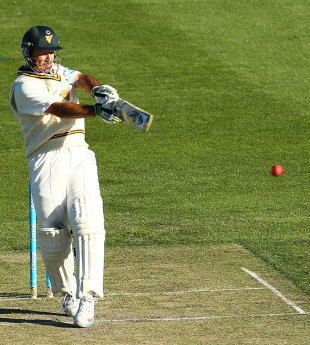
| |||
You couldn't fathom the decision to dump Simon Katich from the list of contracted players. Did you feel that among the selectors, media and public there were a lot of calls for you, Hussey and Katich to go without an understanding that there wasn't the talent underneath to replace you?
My view on selection is, you only ever make a change if it's going to make the team better. A lot of the changes we made didn't make the team better, and I don't care what anybody says. The coach [Tim Nielsen] going when he did didn't make the team better. I think a lot of the stuff that happened with the Argus review was premeditated stuff that was already in the pipeline, and they put this panel together to justify it. You can't tell me that didn't happen with Mickey Arthur, the fact he was in WA coaching. And Tim going when he did - we'd just won a series in Sri Lanka.
My view on selection is, you only ever make a change if it's going to make the team better. A lot of the changes we made didn't make the team better, and I don't care what anybody says. The coach [Tim Nielsen] going when he did didn't make the team better. I think a lot of the stuff that happened with the Argus review was premeditated stuff that was already in the pipeline, and they put this panel together to justify it. You can't tell me that didn't happen with Mickey Arthur, the fact he was in WA coaching. And Tim going when he did - we'd just won a series in Sri Lanka.
My meeting around the Argus review lasted less than an hour. I was dressed in a suit, prepared, notes. I thought I was going to be there all day, thrash everything out for six hours, get my opinions and views on everything. But they asked me a few questions, asked me who was accountable, and I was out. I said to James [Sutherland], "I need to have a chat to you outside." We did and it was like they didn't really want to hear it. They knew what they had to do, some of it had already started, and they didn't want to hear any more. That was disappointing.
Something else that was very important to your attitude was that you batted to win matches, to the exclusion of all else, certainly any personal ambition. There is a story of David Boon declaring on you on 94 not out in a Shield match and it really not mattering at all.
Absolutely, and back when I started playing for Tassie we didn't win too many games. We just had to try to set up a game.
Absolutely, and back when I started playing for Tassie we didn't win too many games. We just had to try to set up a game.
I had only just found out we might be going to declare. David Saker was bowling with the second new ball and a ball or two before we declared, I ran down the wicket and hit him back over his head for six and thought, "I've got another over here to get a hundred", and Boonie's got his hand out the window waving me in. But I just ran off, got changed and ran back out.
Haydos with his 380 is an exception, but the reason we Australians didn't hold a lot of those individual records, especially during those glory days, was, we were trying to win the game. It didn't matter how many I got or Haydos or Lang got if we could get them quick and try to get 20 wickets to win the game.
Even really early at the academy, Rod sat us all down and said, "If you guys can't score 300 runs in a day, you may as well pick your bag up and jump on a plane and go home." That was the way I was brought up, scoring quick, playing with aggression and giving your team the best chance to win. I played 168 Tests and won well over 100 of them because we were able to play that way for most of the time.
As a player you were an outstanding batsman but also an outstanding batsman of and for your time. When Australian cricket was becoming dominant, the way you played suited that mindset and that time. The strength of the players around you gave you licence to play the way you did.
That reflects all of us. Gilly's the same. He was able to play the way he did down [at seven] on the back of what had happened. Even someone like Justin turned himself into the player he did with the confidence of the guys around him. He was looked at as a nicker and a nudger and someone who didn't have much talent, but if you look at how he played his last half-dozen years, he was brilliant. He'd score quicker than Haydos. That sort of confidence and trust in your mates around you is what we need to be able to build again now in this current team.
That reflects all of us. Gilly's the same. He was able to play the way he did down [at seven] on the back of what had happened. Even someone like Justin turned himself into the player he did with the confidence of the guys around him. He was looked at as a nicker and a nudger and someone who didn't have much talent, but if you look at how he played his last half-dozen years, he was brilliant. He'd score quicker than Haydos. That sort of confidence and trust in your mates around you is what we need to be able to build again now in this current team.
That's happened around the South African team now and was really evident in my last Test, the way they played after lunch on the second day, when Amla and Smith got 180 in a session, that's a team with total confidence in the rest of their mates. If you're ever worried about exposing someone, you can't play that way. They trusted each other that they could impose themselves on us and they did it. That's what we used to do.
| "That team we had, Gilly could've captained, I could've captained, they say Warney could have captained but I'm not sure. Haydos couldn't have been captain, Langer couldn't have been, Marto couldn't have been" | |||
One of the fascinating things about the book is how you reflect on your earlier years. There were momentous things going on around you in Australian cricket but a lot of it passed you by as a young player making your way. There are a lot more guys like that now, and not as much leadership to take them through it.
I've been asked why we haven't got any leaders around Australian cricket at the moment, and to be honest I'm not sure we ever have. I just think there aren't a lot of leaders in the world or in sporting teams. There are a lot of guys who aren't meant to be that. If you went around to a lot of the rugby league or Aussie Rules teams, there wouldn't be a lot of guys in those sides who you'd think could lead.
I've been asked why we haven't got any leaders around Australian cricket at the moment, and to be honest I'm not sure we ever have. I just think there aren't a lot of leaders in the world or in sporting teams. There are a lot of guys who aren't meant to be that. If you went around to a lot of the rugby league or Aussie Rules teams, there wouldn't be a lot of guys in those sides who you'd think could lead.
That team we had, Gilly could've captained, I could've captained, they say Warney could have captained but I'm not sure he could have with all the other stuff off the field. On the field he might have seen the game really well, but I don't think he could have been captain. Haydos couldn't have been, Langer couldn't have been, Marto couldn't have been. So maybe there's not those leaders we always thought there were.
I always just tried to think about being a leader, no matter where I was at. If I was a young bloke in a team I thought I could be a leader just with energy, the way I train and trying to make myself a better fielder and player. Because I thought if someone else saw me doing that, they'd want to do it no matter how old they were. So when I came in the side and Mark Waugh was the best fielder, I was going to train harder every day to make sure I was better than him, and if I got better than him maybe he'd want to chase me. There's not a lot of leadership types around our team at the moment but I think that will grow. Steve Smith's grown, he's maturing well and has led NSW, he might be someone down the track who has got what it takes.
The qualities you need to have to lead have to be evident pretty early, don't they?
You can't manufacture it either, you've either got what it takes or you haven't. I'm a massive believer that leaders are born, not made or created. It's within you to worry about others first rather than yourself.
You can't manufacture it either, you've either got what it takes or you haven't. I'm a massive believer that leaders are born, not made or created. It's within you to worry about others first rather than yourself.
